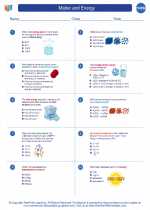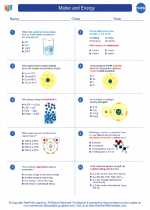Anatomy and Function of the Pituitary Gland
Anatomy of the Pituitary Gland
The pituitary gland, also known as the hypophysis, is often considered the "master gland" of the endocrine system. It is a small, pea-sized gland located at the base of the brain, just below the hypothalamus. The pituitary gland is divided into two parts: the anterior pituitary (adenohypophysis) and the posterior pituitary (neurohypophysis), each with distinct functions and roles in hormone regulation.
Anterior Pituitary (Adenohypophysis)
The anterior pituitary is composed of glandular tissue and synthesizes and secretes a variety of hormones that regulate various physiological processes in the body. These hormones include:
- Growth Hormone (GH): regulates growth and metabolism
- Adrenocorticotropic Hormone (ACTH): stimulates the adrenal glands to produce cortisol
- Thyroid Stimulating Hormone (TSH): stimulates the thyroid gland to produce thyroid hormones
- Follicle-Stimulating Hormone (FSH) and Luteinizing Hormone (LH): regulate the reproductive system
- Prolactin: stimulates milk production in the mammary glands
Posterior Pituitary (Neurohypophysis)
The posterior pituitary is an extension of the nervous system and does not synthesize hormones. Instead, it stores and releases two hormones produced by the hypothalamus:
- Oxytocin: regulates uterine contractions during childbirth and stimulates milk ejection during breastfeeding
- Antidiuretic Hormone (ADH) or Vasopressin: regulates water balance by controlling the reabsorption of water in the kidneys
Study Guide for Pituitary Gland
- Anatomy of the Pituitary Gland: Understand the structure and location of the pituitary gland, including its connection to the hypothalamus and the division into anterior and posterior parts.
- Hormones of the Anterior Pituitary: Learn about the hormones produced by the anterior pituitary, their functions, and the target organs or tissues they act upon.
- Hormones of the Posterior Pituitary: Study the hormones released by the posterior pituitary, their roles in the body, and their regulation by the hypothalamus.
- Regulation of Hormone Release: Explore the mechanisms through which the hypothalamus controls the release of hormones from the pituitary gland.
- Clinical Implications: Investigate disorders or conditions related to pituitary gland dysfunction, such as acromegaly, gigantism, Cushing's syndrome, and diabetes insipidus.
Understanding the pituitary gland and its role in hormone regulation is crucial for comprehending various physiological processes and clinical conditions related to endocrine function.
.◂Chemistry Worksheets and Study Guides High School. Matter and Energy

 Worksheet/Answer key
Worksheet/Answer key
 Worksheet/Answer key
Worksheet/Answer key
